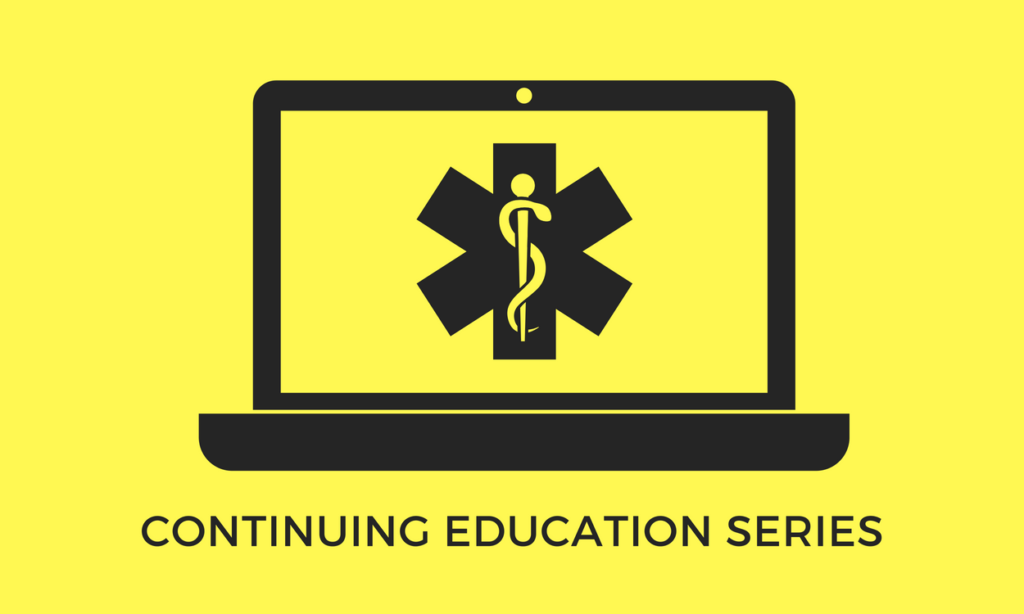Continuing Education Resources for Emergency Nurse Practitioners

To maintain their national board-certification and their state licensures, emergency nurse practitioners (NPs) must complete a certain amount of continuing education on a recurring basis. For some NPs, a percentage of their continuing education must be pharmacology-related and another percentage must be specific to their medical specialty. After figuring out your requirements, the next step is finding the best continuing education. This article highlights five different options for continuing education resources for emergency nurse practitioners.
- Emergency Nurses Association
- Emergency Medicine Boot Camp from the Center for Emergency Medicine Education
- Fitzgerald Health Education Associates
- Practitioner Education Associates
- Hospital Procedures Consultants
This article was originally written for healthecareers.com.
Emergency Nurses Association
In addition to their annual conference, the Emergency Nurses Association (ENA) offers a variety of other continuing education courses. Along with experts in pediatric emergency nursing, the ENA has developed the Emergency Nursing Pediatric Course, a two-day comprehensive class providing core-level pediatric knowledge and psychomotor skills needed to treat pediatric patients.
The ENA also has created the Trauma Nursing Core Course used to standardized trauma nursing education. This is an intensive two-day class used to build a firm foundation in trauma nursing. Finally, as a member of the ENA, you have access to a collection of online continuing education courses that focus on certification review, trauma, geriatrics, pediatrics and more!
Emergency Medicine Boot Camp
The Center for Medical Education offers the Emergency Medicine Boot Camp bi-annually to emergency nurse practitioners. It was designed by nationally recognized emergency medicine faculty offer the essential, hands-on training needed to practice in a modern-day emergency department or urgent care center.
The book camp lasts three a half days, covered 45 different topics, and awards 26 continuing education hours. These live, in-person classes are taught by nurse practitioners and physicians. Attendees practice their new skills in patient simulations. In addition, if you aren’t able to travel to the courses, you can purchase audio and video files for self-study online.
In addition, the Center for Emergency Medicine Education also offers courses in high-risk emergency medicine, pediatric emergency medicine, and emergency airway management. These courses are available online or as a DVD set.
Fitzgerald Health Education Associates
Founded and owned by a nurse practitioner, Fitzgerald Health Education Associates offers a variety of courses applicable to emergency nurse practitioners, including Exam Essentials, Pharmacology Update, Suture Workshop, Orthopedic Extremities Evaluation, and 12-Lead ECG Interpretation Beyond the Basics.
A popular option for emergency nurse practitioners is Fitzgerald’s Urgent Care Package. This group of courses awards 19.6 continuing education credits and includes audio courses and supplementary books. Emergency nurse practitioners might also want to brush up on the latest research by taking a Clinical Pharmacology or Advanced Pathophysiology courses.
Practitioner Education Associates
Hosted by emergency nurse practitioner Denise Ramponi, Practitioner Education Associates provides a three-day skills conference covering the topics of suturing, minor office procedures, x-ray interpretation, dental emergencies, slip lamp, 12-lead ECG interpretations, splinting, orthopedic injection, and splinting. Conferences are held throughout the year across the country awarding up to 33 continuing education hours.
Hospital and Emergency Procedures
The Hospital Procedures Consultants company offers live, in-person courses across the country on the topics of emergency procedures. Upcoming, 2017 courses will be held in Chicago, San Antonio, Las Vegas, and Washington DC.
These courses involve hands-on skills lab training with multiple instructors as well as 17 lecture modules that can be completed online before attending the training. Every student receives flash drive preloaded with all course content.
Procedures that clinicians will learn in this course include:
- Ultrasound-guided central line and peripheral IV placement
- Intraosseous line placement
- Arterial line placement
- Vascular, chest, and spine ultrasound
- Limited Echocardiography
- E-FAST and RUSH exams
- Among many others
Questions? Thoughts? Comment below, or email me!
Share on Facebook Share on Twitter Share on Pinterest
2 Comments on "Continuing Education Resources for Emergency Nurse Practitioners"